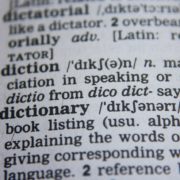Both meaning the person who produces a certain piece of writing, “writer” and “author” are frequently used interchangeably. Indeed, they are quick and easy alternatives to one another. Other synonyms including “reporter,” “content producer,” “columnist,” and “novelist” have specific meanings attached to them. Therefore, the contexts where they can be used are not as broad.
Although “writer” and “author ” can be used as synonyms without causing misunderstanding in a great many situations, there are subtle differences between them. The lexical construction of “writer” is quite simple: “write” + “er,” meaning someone who writes. On the other hand, the word “author” seems perplexing (one can’t help but wonder what the root word is). Among the word’s various origins, one is particularly important to understanding how “author” differs from “writer” — Old French auctor, acteor meaning “originator.” While the word “writer” focuses on the process of writing, “author” emphasizes the origination of content.
The difference becomes critical when we talk about news stories, particularly in the post-truth era. The reporter of a news story is the “writer,” who looks into news material and organizes it in words. It is usually done in a way that agrees with facts. However, if you refer to the reporter as an “author,” you suggest that he or she invented the contents of the news story. It is thus an accusation of spreading fake news.
Another difference is rather straightforward. “Writer” is associated with both published and unpublished works, whereas “author” is typically connected with published writings. For example, if you describe yourself as a writer, there is a possibility that you only have a job that requires you to write and you may not be accredited as an author; if you say you are an author, people will assume that you have some written works published that show your name on the book covers.






Comments